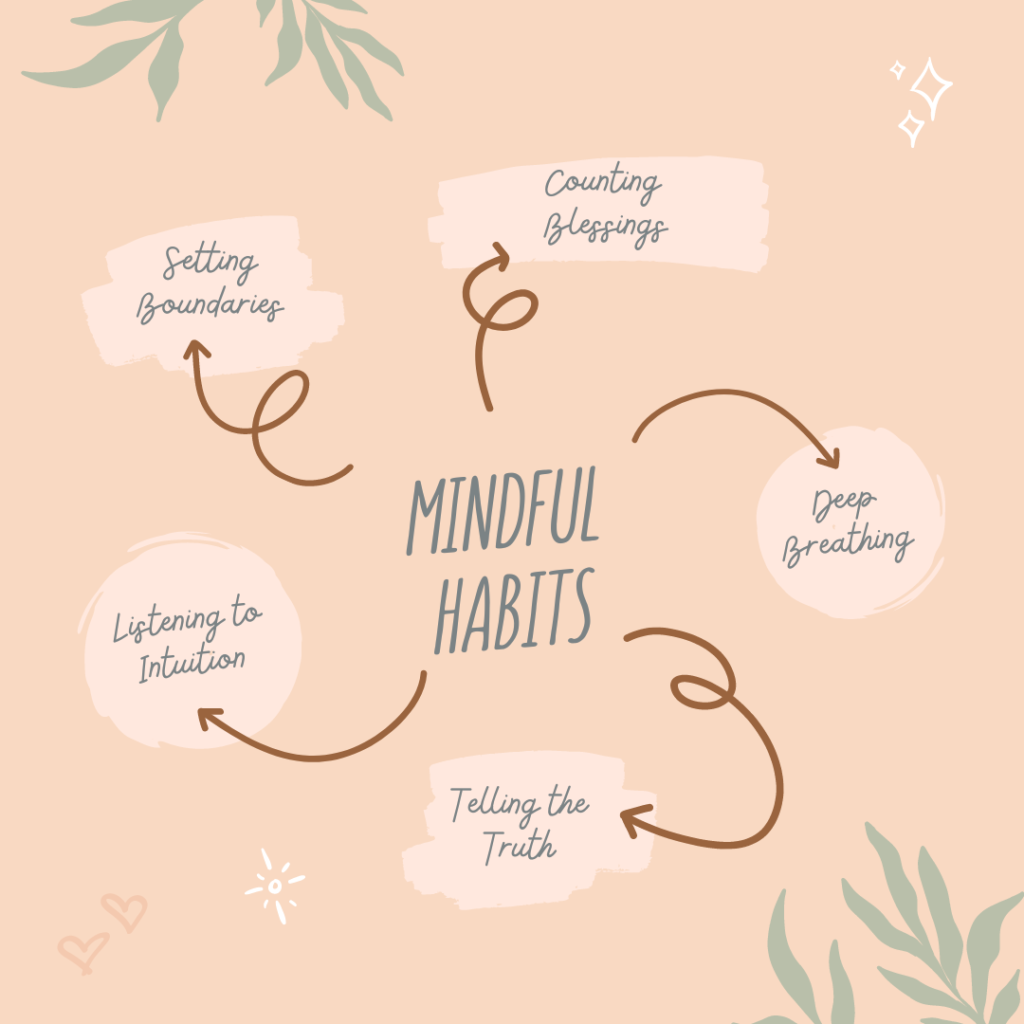How can we approach someone about a potentially harmful habit they have without causing offense or damaging our relationship with them?
There are many habits and actions that can potentially ruin your life:
- Engaging in addictive behaviors such as drug or alcohol abuse, gambling, or compulsive overeating
- Failing to take care of your physical health by not exercising regularly, eating a poor diet, or neglecting medical care
- Being constantly negative or self-critical, which can lead to depression and anxiety
- Procrastinating on important tasks or failing to take action on your goals and dreams
- Engaging in toxic relationships or neglecting your personal relationships altogether
- Refusing to take responsibility for your actions and blaming others for your problems
- Failing to manage your finances responsibly, which can lead to debt and financial ruin
- Allowing fear or insecurity to prevent you from taking risks and pursuing your passions.

It’s important to be aware of these potential pitfalls and take proactive steps to avoid them in order to lead a healthy, fulfilling life. It can be either you or your friend who adapted these habits and now on the journey to ruin his/her life !
There are several habits that can ruin our life over time. Here are some common ones:
- Procrastination: Putting things off until the last minute can lead to missed opportunities, unfinished tasks, and increased stress.
- Negative self-talk: Constantly criticizing ourselves can erode our self-esteem and prevent us from achieving our goals.
- Sedentary lifestyle: Lack of physical activity can lead to weight gain, health problems, and decreased energy levels.
- Poor diet: Consuming excessive amounts of sugar, processed foods, and unhealthy fats can lead to weight gain, high blood pressure, and other health problems.
- Substance abuse: Using drugs or alcohol excessively can damage our health, relationships, and career prospects.
- Overspending: Living beyond our means and accumulating debt can cause financial stress and limit our options in life.
- Lack of sleep: Not getting enough sleep can affect our mood, memory, and ability to concentrate.
- Procrastinating sleep: Staying up late or waking up too early regularly can lead to a wide range of health issues, such as heart disease, depression, and diabetes.
- Lack of social support: Isolating ourselves from friends and family can lead to loneliness, depression, and anxiety.
- Lack of purpose: Not having a clear sense of purpose can make us feel unfulfilled and unmotivated in life.
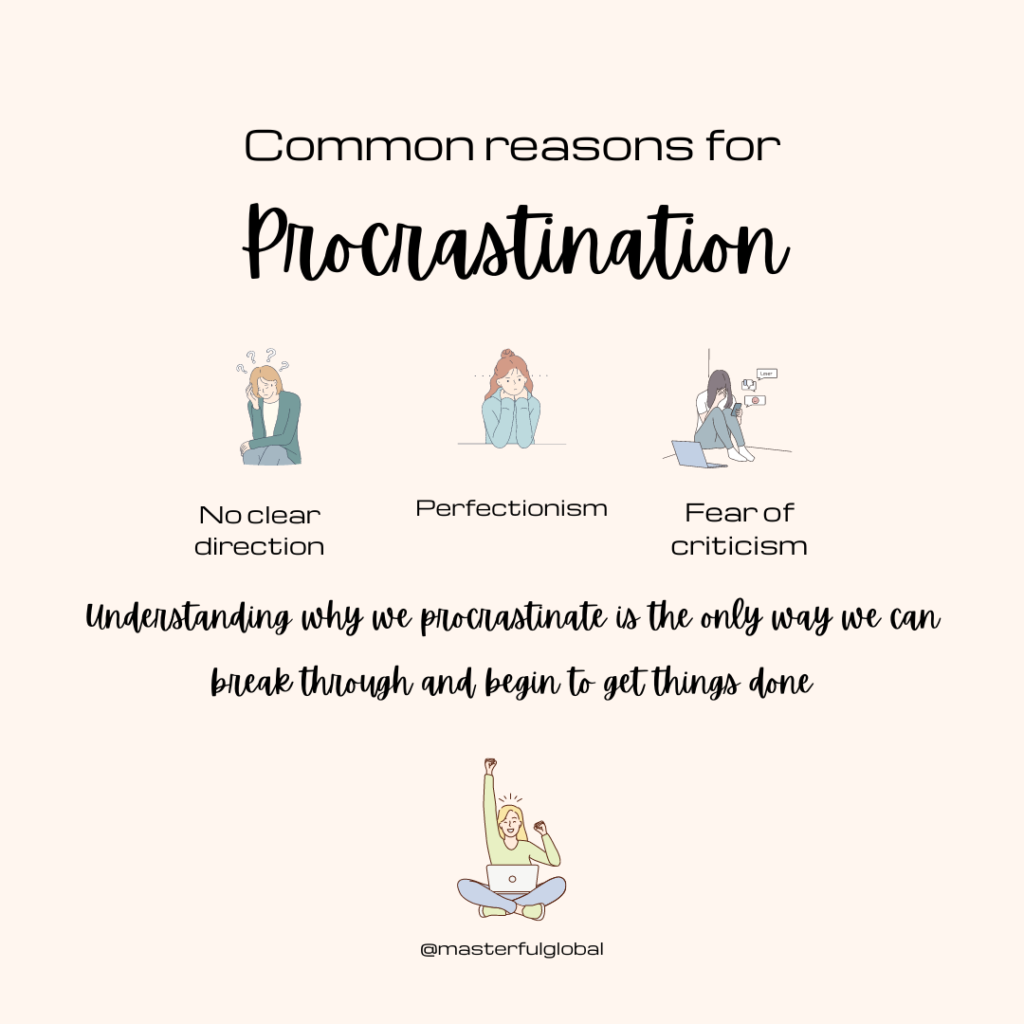
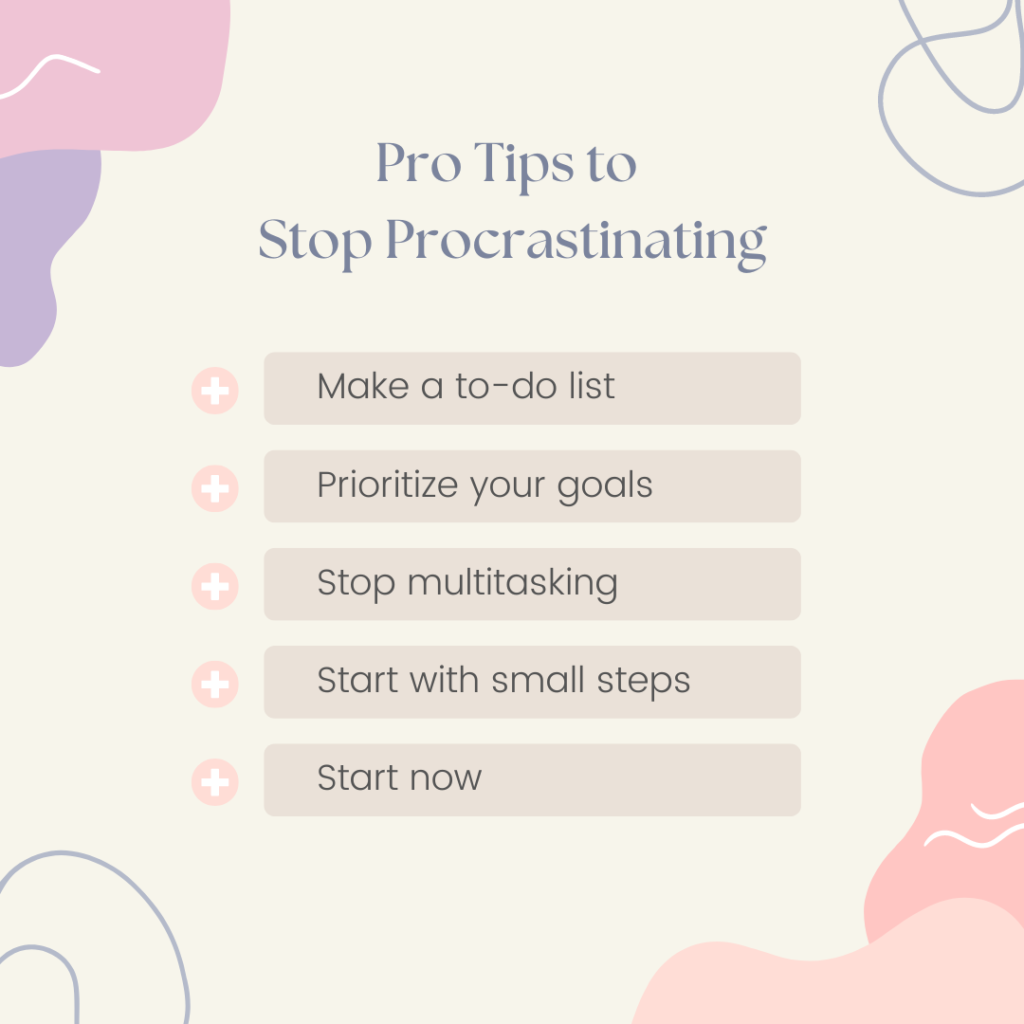
One major bad habit is overspending which may include going on a shopping spree,partying every weekend, cutting out of pocket for maintaining living standards. This habit can be detrimental to your financial health and make it difficult to achieve your long-term financial goals. Here are some reasons why this habit can be harmful and some steps you can take to improve your spending habits:
First, overspending can lead to debt. If you spend more than you earn, you will have to borrow money to make ends meet. This can lead to high-interest debt that can be difficult to repay, especially if you continue to overspend.
Second, overspending can prevent you from achieving your financial goals. Whether you want to save for a down payment on a house, pay off student loans, or invest for retirement, overspending can make it difficult to achieve these goals. Instead of putting your money towards these long-term goals, you may be spending it on unnecessary items or experiences.
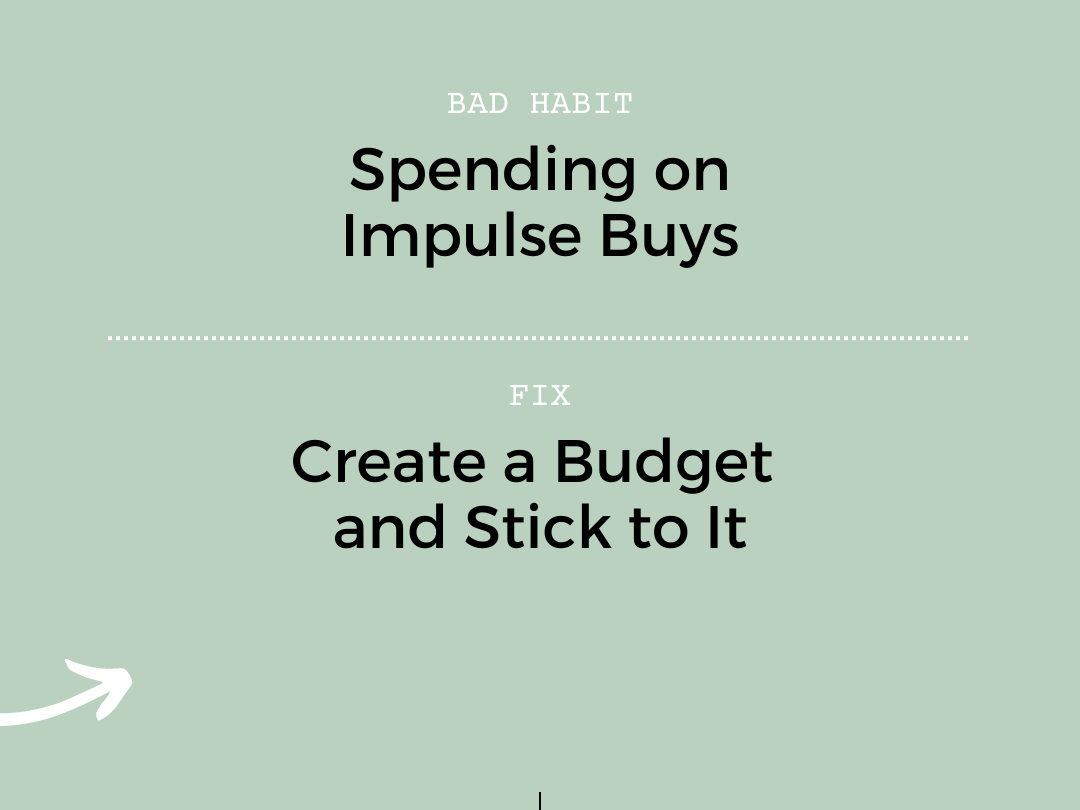
To break this habit, you can take several steps:
- Create a budget: Start by creating a budget that outlines your income and expenses. This will help you identify areas where you can cut back on spending.
- Track your spending: Keep track of your spending for a month or two to see where your money is going. This can help you identify patterns and areas where you can cut back.
- Set financial goals: Set clear financial goals, such as paying off debt, saving for retirement, or buying a house. This can help motivate you to stay on track with your spending.
- Plan your purchases: Plan your purchases ahead of time to avoid impulse buys. Make a list of what you need and stick to it.
- Avoid triggers: Identify triggers that may lead to overspending, such as sales or social events, and develop strategies to avoid them.
- Seek help: Consider seeking help from a financial advisor or credit counselor if you need additional support. They can help you create a plan to improve your financial situation and manage your spending habits.
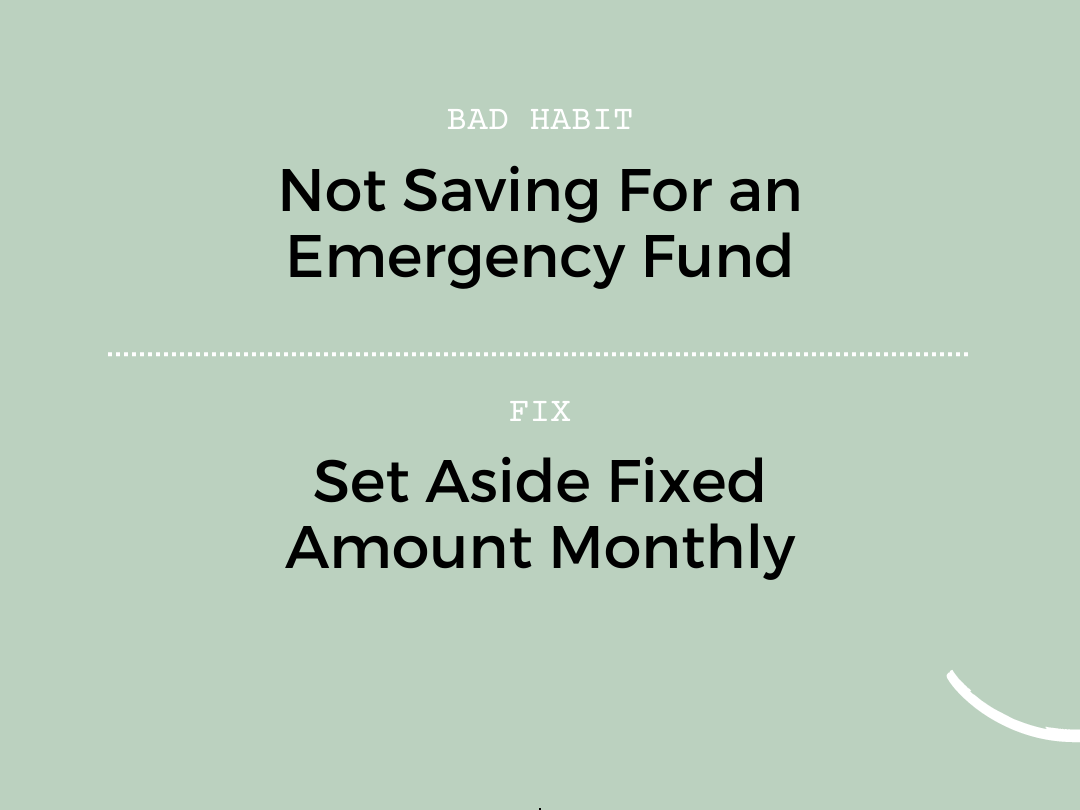
Be patient with yourself and keep moving forward, even if you experience setbacks along the way. By taking steps to improve your spending habits, you can achieve your financial goals and live a more financially stable life.
Breaking bad habits can be challenging, but making real-life changes can help improve them. Here are some strategies that can help:
- Identify the habit: Start by recognizing the habit that you want to change. Be specific about what you want to change and why.
- Set clear goals: Set realistic and specific goals for what you want to achieve. Create a plan with clear steps to reach those goals.
- Replace bad habits with good ones: Identify positive habits that can replace the negative ones. For example, if you want to quit smoking, you could replace that habit with exercise or meditation.
- Create accountability: Tell someone about your goals and ask them to hold you accountable. Join a support group or find a mentor to help you stay on track.
- Change your environment: Make changes to your environment that will support your new habits. For example, remove unhealthy food from your home if you want to improve your diet.
- Practice mindfulness: Practice being present and mindful of your thoughts and actions. This can help you identify triggers that lead to bad habits and develop strategies to avoid them.
- Celebrate small successes: Celebrate small victories along the way to keep yourself motivated and engaged in the process.
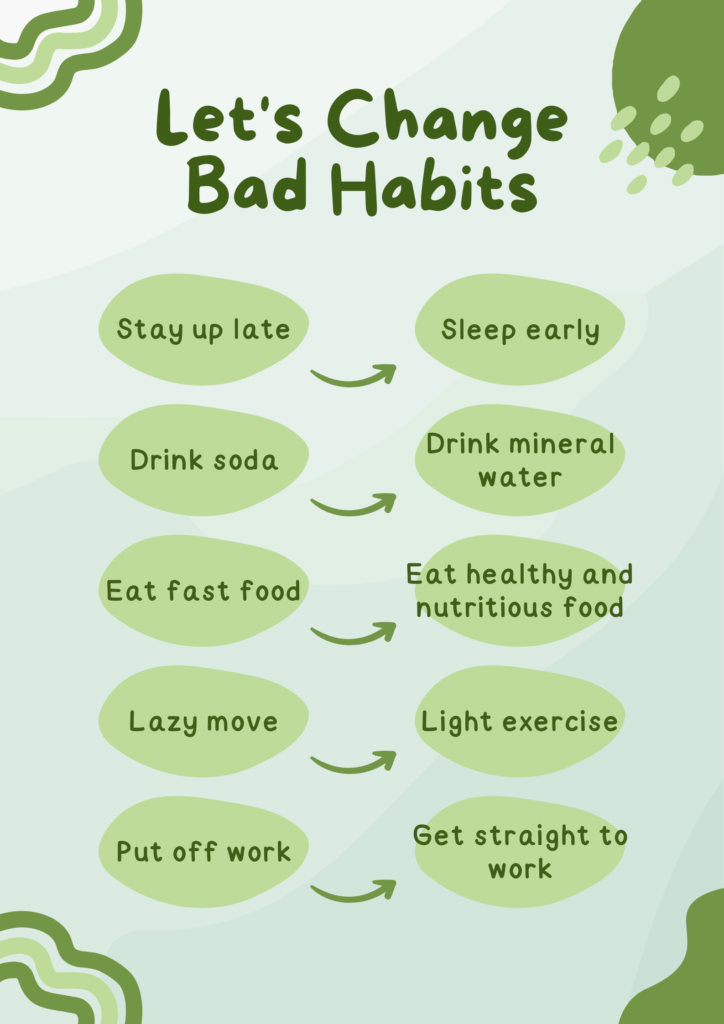
Breaking bad habits takes time and effort. Be patient with yourself and keep moving forward, even if you experience setbacks along the way. Often, you don’t realize that a habit is ruining your life. You may need a little help there.
However, Being blunt about someone’s bad habit can be a delicate situation.
Being a good friend means being honest and supportive, even when it’s difficult. Sometimes that means pointing out your friend’s bad habits or behavior and helping them to make positive changes. However, it’s important to approach the situation with empathy and understanding, and to offer support and resources to help them make those changes.

It’s important to approach the situation with tact and empathy, while still being honest and direct. Here are some tips for being blunt about someone’s bad habit:
- Be specific: Identify the specific behavior or habit that is causing concern, and explain why it’s problematic.
- Focus on the behavior, not the person: Avoid attacking the person’s character or personality. Instead, focus on the specific behavior or habit that needs to change.
- Use “I” statements: Instead of blaming or accusing the person, use “I” statements to express your own feelings and concerns.
- Offer support and resources: Rather than just criticizing the person’s behavior, offer support and resources to help them make positive changes.
- Be prepared for resistance: Changing a habit is difficult, and the person may not be receptive to your feedback at first. Be patient and continue to offer support and encouragement.
Remember, it’s important to approach the situation with empathy and understanding. While it’s important to be direct and honest about the impact of someone’s bad habit, it’s also important to be compassionate and supportive in helping them make positive changes.

On a broader aspect, there are many negative impacts that certain habits or behaviors can have on our lives, including:
Physical health problems: Habits like smoking, overeating, or not exercising can lead to a variety of physical health problems, including heart disease, diabetes, and obesity.
Mental health problems: Chronic stress, lack of sleep, and other negative habits can lead to mental health problems like anxiety and depression.
Relationship problems: Certain habits, like being overly critical or controlling, can lead to strained relationships with friends, family, and romantic partners.
Financial problems: Poor spending habits, like overspending or not saving money, can lead to financial stress and insecurity.
Career problems: Negative habits like procrastination or poor time management can impact job performance and limit career opportunities.
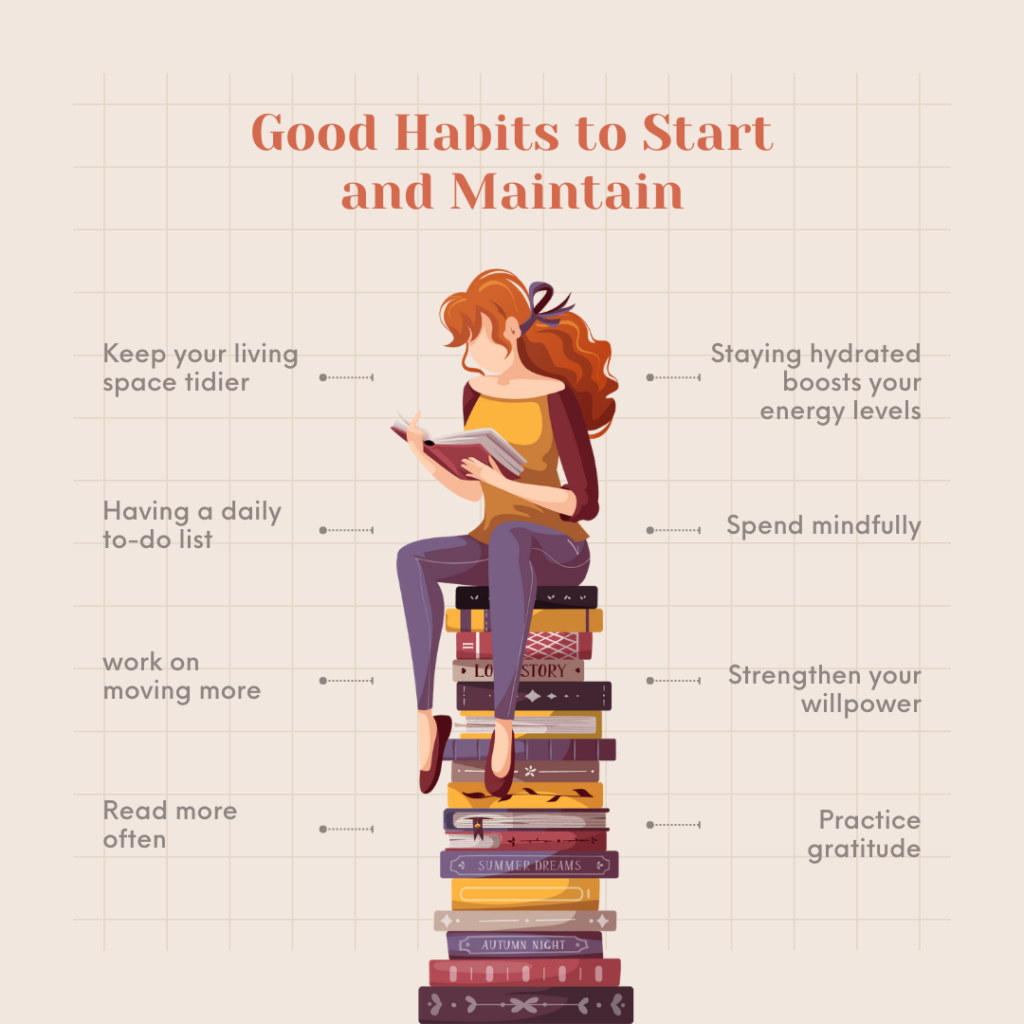
It’s important to seek help when negative habits or behaviors are impacting your life in a negative way. Some ways to ask for help include:
- Talking to a trusted friend or family member: Sometimes just talking to someone you trust about your struggles can help you feel better and provide you with valuable support and advice.
- Seeking professional help: If you’re dealing with mental health issues or addiction, it’s important to seek professional help from a therapist, counselor, or other mental health professional.
- Joining a support group: Joining a support group with others who are going through similar struggles can provide you with valuable support, encouragement, and accountability.
It’s okay to ask for help and to reach out to others when you’re struggling. Seeking help is a sign of strength, not weakness, and can help you overcome the negative impacts of certain habits or behaviors on your life.
